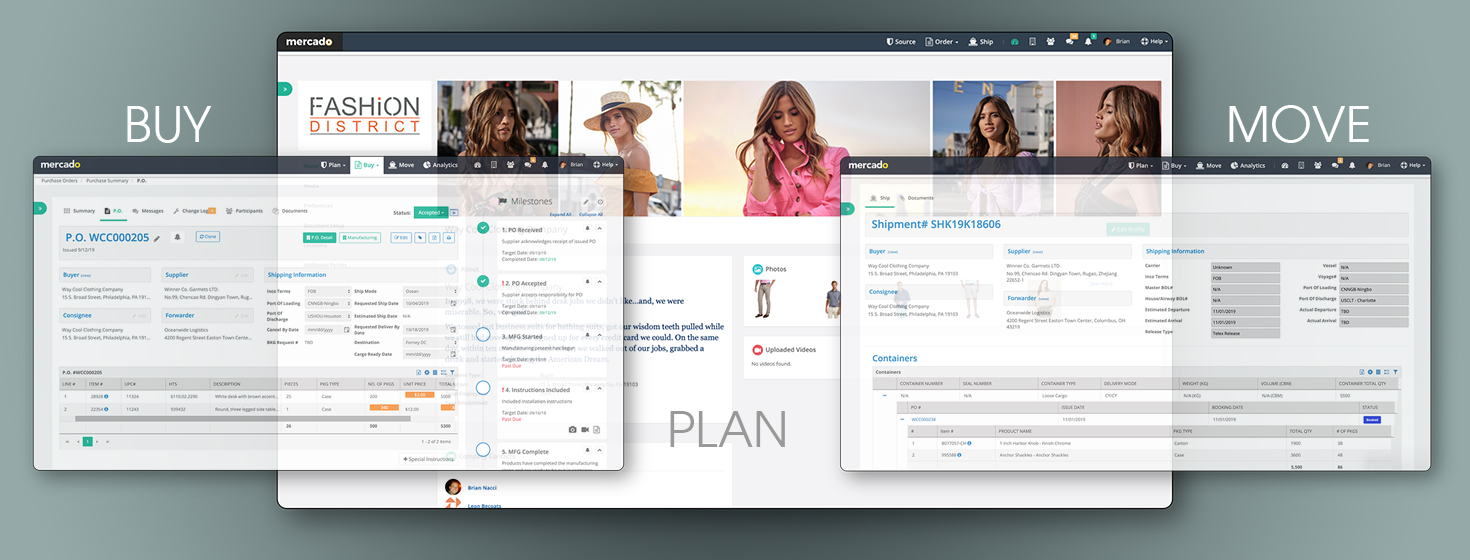Optimizing the First Mile of the International Supply Chain

Many issues during the final stages of the supply chain are in fact the result of issues that arise way further up-stream.
Final Mile the Rosetta Stone of Supply Chain Success
We’ve long heard the importance of the Final Mile (also known as the Last Mile) within international supply chain and logistics.
From procurement to sourcing to delivery, the Final Mile is often heralded as the Rosetta Stone of supply chain success.
And that makes sense since, for every $10 USD of additional cost incurred by international importers, consumers are only willing to pay $1.4 USD (Statista, 2020).
That leaves a large shortfall that companies either have to pass on to consumers anyway, else take the hit internally.
What’s missing in this equation, however, is why those costs are incurred in the first place. Many issues that are identified during the final stages of the supply chain are in fact as a result of issues that arose way further up-stream – during the first 120 days that are known as the First Mile.
Optimizing the First Mile starts by understanding the 3 areas it touches: the people involved (both internal employed and departments, as well as external 3rd parties); the processes that have been created (how Purchase Orders are created and managed along the end-to-end supply chain); and the tools that are used to manage those processes.
1. The People involved in the First Mile
With the average Purchase Order touching 6 business entities (including suppliers, factories, and carriers) and 9 departments (including planning, sourcing, procurement, and distribution), it’s no wonder information gets lost in transit.
International importers today have to engage across each function and department in order to successfully ensure that the products ordered are those that are received at the destination.
2. The Processes created for the First Mile
To manage this, the international supply chain has created thousands of processes to manage vital product and inventory data across different entities and organizations. The result, however, is a tangle of different people and tools engaging across different languages, lingo, and agendas.
3. The Tools used to manage the First Mile
Despite being in the 21st century, email and spreadsheets remain the typical tools for most importers to manage tens, sometimes hundreds, of thousands of dollars worth of inventory every day.
Lost comments, misunderstood communications, and a total lack of transparency have resulted in high rework costs and long delays for most, if not all, importers every year.
“Optimizing the First Mile starts by understanding the 3 areas it touches: the people involved… the processes that have been created… and the tools that are used to manage those processes.”
Optimizing the First Mile starts and ends with the Order
At Mercado, we know that your products are the lifeblood of your business. If you can’t be sure you’re going to get what you ordered, then…well, you’ve got problems. The Mercado Platform is designed to put your goods at the heart of the process. That means digitizing the Purchase Order (PO) so everyone involved is working from the same information. Any changes or decisions are updated live and in real-time.
Milestones ensure there are clearly articulated steps to follow from the moment a PO is placed to its arrival at the destination, with relevant sign-offs and verification checks needed before the next step can begin.
And with the ability to upload and share documents, you can ensure regulatory and social compliance standards adhere to every step of the way.
The Battle For Supply Chain Superiority: First Mile Versus Last Mile
The final steps in the international supply chain often referred to as the Final Mile (or Last-Mile), have been the focus for improvement for some time. New brands have shot up in recent years to help tackle the question of how to get goods to customers faster, more efficiently, and at a lower cost. Enhanced tracking systems, improved delivery analytics, and standardized operating procedures have all come about as a result, yet many are missing the most crucial stage of the supply chain: the First Mile. And here’s why.
What is the First Mile?
The First Mile is typically defined as the initial 120 days of the supply chain, where importers have the ability to affect the success of their product and inventory.
Why is the First Mile so Important?
What many importers don’t realize, is that it’s during the First Mile that decisions and changes surrounding the size, spec, and manufacturing of products can be addressed – long before it gets anywhere near a plane or boat. Issues that arise when inventory is on the sea or in the air cannot be fixed until they arrive at destination – leading to potentially lengthy delays and rising costs due to re-work and lost sales. The First Mile is so important because it has ramifications on the entire downstream supply chain operations.
How can I Move to a First Mile focused Supply Chain?
Tools like Mercado help importers to reprioritize where they manage the goods, starting with the Purchase Order. By digitizing the way an order is created, managed, and processed across the myriad of people, tools, and processes involved in a typical supply chain, the Mercado platform helps to connect parties, create true transparency and visibility across an order, and automate previously manual tasks to bring greater predictability and control.
“The First Mile is typically defined as the first 120 days of the supply chain, where importers have the ability to affect the success of their product and inventory. It’s here that decisions and changes surrounding the size, spec, and manufacturing of products can be addressed – long before they get anywhere near a plane or boat.”
About Mercado
At Mercado Labs, we know your product is the lifeblood of your business. And yet managing your imports has become increasingly complex over recent years, with products taking on average 4 months to receive, suppliers located thousands of miles away, and external forces – from trade wars to global pandemics – creating extreme uncertainty. Most of the process is analog and takes far too long. So we wanted to change that.
The Mercado platform helps importers to better manage their orders from source to store. By focusing on the First Mile – the initial 120 days of an order – we help businesses optimize their global trade, eliminating pain and mitigating risk across the supply chain.
Related Article: A Technology Platform Focused On Transforming the Global Supply Chain by Digitizing the First Mile
Related Resource
Connecting Global Supply with Global Demand
In these 2 product papers, we describe why most companies place a great deal of focus on the last steps of the supply chain, but the first 120 days are even more critical. Download Now!
More Resources from Mercado
Article Topics
Mercado News & Resources
A Technology Platform Focused On Transforming the Global Supply Chain by Digitizing the First Mile Connecting Global Supply with Global Demand Optimizing the First Mile of the International Supply ChainLatest in Supply Chain
How Supply Chains Are Solving Severe Workplace Shortages SAP Unveils New AI-Driven Supply Chain Innovations How Much Extra Will Consumers Pay for Sustainable Packaging? FedEx Announces Plans to Shut Down Four Facilities U.S. Manufacturing is Growing but Employment Not Keeping Pace The Two Most Important Factors in Last-Mile Delivery Most Companies Unprepared For Supply Chain Emergency More Supply Chain















